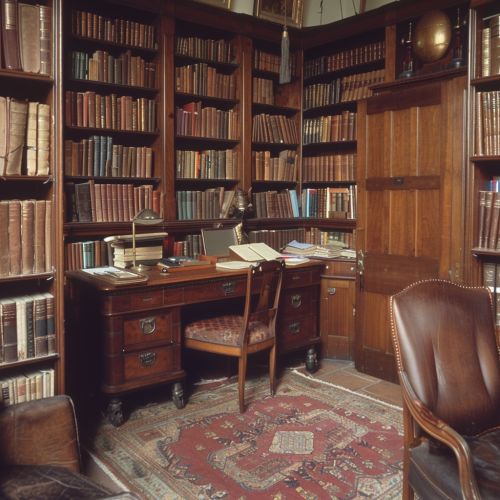Wilfred Bion
Early Life and Education
Wilfred Ruprecht Bion was born on September 8, 1897, in Mathura, a city in northern India. His father, William Bion, was a civil engineer employed by the Indian government, and his mother, Frances Emily Bion, was a charitable worker. Bion spent his early childhood in India before being sent to England for his education.
He attended Bishop's Stortford College and later the Queen's College, Oxford, where he studied history. His academic pursuits were interrupted by the outbreak of World War I, during which he served in the Tank Corps and was awarded the Distinguished Service Order for his bravery. After the war, Bion returned to Queen's College and switched his field of study to medicine.


Medical Career and Psychoanalytic Training
Bion began his medical studies at University College Hospital, London, in 1921. After qualifying as a doctor, he worked in various hospitals around London, including the Tavistock Clinic, where he first became interested in psychoanalysis.
In 1938, Bion began his psychoanalytic training at the British Psychoanalytical Society. He was analyzed by John Rickman and later by Melanie Klein, a leading figure in the development of psychoanalytic theory. Under Klein's influence, Bion developed an interest in the psychoanalysis of children and began to formulate his own theories about the development of the human mind.
Contributions to Psychoanalysis
Bion's most significant contributions to psychoanalysis revolve around his theories of thinking and learning. He proposed the concept of "container-contained" to describe the relationship between the analyst and the patient. According to this theory, the analyst acts as a "container" for the patient's emotions, which are then "contained" and processed.
Bion also developed the concept of "alpha function," which he described as the mental process that transforms raw sensory data into thoughts. He suggested that this function is impaired in individuals with psychotic disorders, leading to a breakdown in their ability to think and understand reality.
Another significant contribution of Bion's is his theory of "group dynamics." He proposed that groups operate according to basic assumptions that influence their behavior. These assumptions can be categorized into three types: dependency, fight-flight, and pairing.
Later Life and Legacy
Bion continued to work and write extensively on psychoanalysis until his death on November 8, 1979. His theories have had a profound impact on the field of psychoanalysis, particularly in the areas of child development and group dynamics.
Bion's work has been influential in shaping the practice of psychotherapy and has contributed to our understanding of mental health disorders. His theories continue to be studied and applied in psychoanalytic training programs worldwide.
